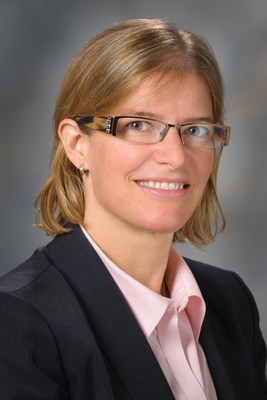Jennifer Wargo, M.D., leads research on link between microbiome and cancer treatment and recently co-authored Science review with Micronoma founders
|
SAN DIEGO, April 6, 2021 /PRNewswire/ -- Micronoma, the first cancer detection biotech company that utilizes signals from the tumor-related microbiome to diagnose cancer at an early stage with liquid biopsy technology, today announced that Jennifer Wargo, M.D., M.M.Sc., Professor, Surgical Oncology & Genomic Medicine at The University of Texas MD Anderson Cancer Center in Houston will be joining its Scientific Advisory Board (SAB). Dr. Wargo has led and published key research on the microbiome and the role it plays in patient response to cancer therapy. "Dr. Wargo's contribution to the field of cancer and the microbiome is pioneering and important in the overarching understanding of a devastating disease," said Sandrine Miller-Montgomery, CEO of Micronoma. "As the first practicing physician on our Scientific Advisory Board, and with a personal story and commitment to diagnosing cancer early, Dr. Wargo adds a unique clinical perspective that ensures that our work remains relevant to clinicians." In addition to joining the board, Wargo and other SAB members, including Micronoma co-founders Rob Knight and Gregory Poore and SAB member Ravid Straussman, last week published a review in Science Magazine, The microbiome and human cancer. There has been a recent increase in knowledge and recognition of the role of the microbiome in various aspects of cancer: diagnosis and prognosis, treatment pathways and effectiveness, and remission monitoring. This team, along with other co-authors, were invited to provide a critical perspective on microbiome and cancer research done to date. The review, reporting on more than 170 published studies, examines recent advances in proposed mechanisms, diagnostics, endogenous modulation approaches, and exogenous therapeutic strategies. "The review in Science magazine explains that the importance of microbes' role in cancer management is not as far-fetched as it may sound, and importantly, may inspire further innovations," Montgomery-Miller said. "We are not just looking at tumor or somatic mutational load or epigenetic modifications within the cancer cells, we also investigate the potential microbial drivers and passengers in the context of cancer. The interrogation of microbial signatures will be useful in diagnosis, especially at the earlier stages of the disease, as well as monitoring therapy response as an adjunct to other approaches." Micronoma's research was published in Nature last year, showing unique predictive microbial signatures in tissue and blood for most major types of cancer. Accurate, early cancer detection via liquid biopsy remains a challenge that Micronoma may be able to solve through its proprietary Oncobiota™ platform. The diagnostic implications of microbiome markers in liquid and tissue biopsies are extensive, and Micronoma is prepared to lead the way on helping prevent unnecessary suffering caused by later-stage cancer diagnosis, as well as potentially enabling personalized and less invasive treatments at the earlier stages of cancer. To learn more about Micronoma, please go to Micronoma.com. About Micronoma Disclosure Statement
SOURCE Micronoma |






